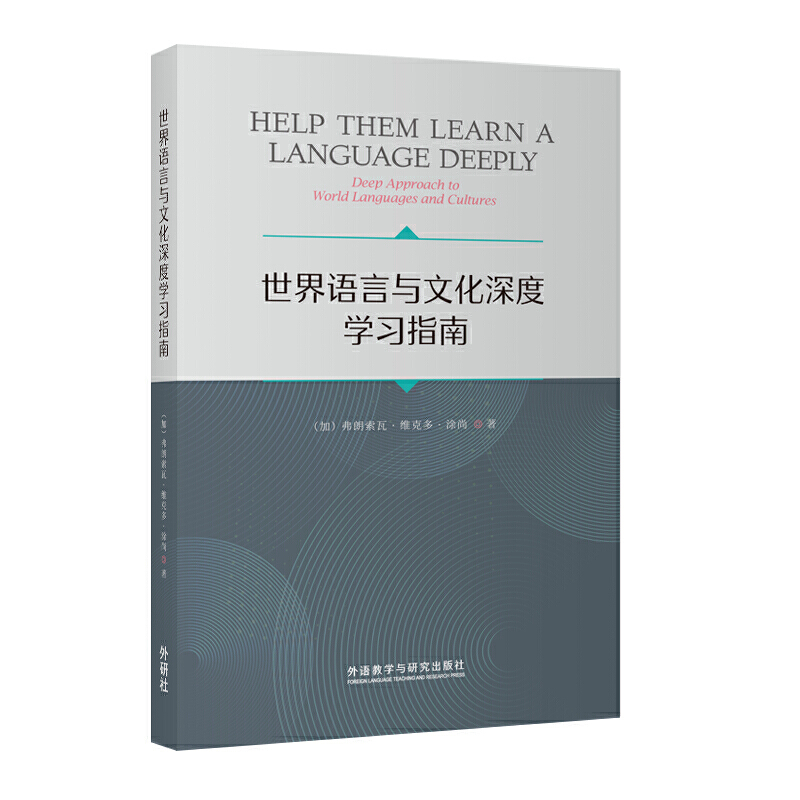- ISBN:9787513597753
- 装帧:平装-胶订
- 册数:暂无
- 重量:暂无
- 开本:其他
- 页数:420
- 出版时间:2019-12-01
- 条形码:9787513597753 ; 978-7-5135-9775-3
本书特色
本书主要介绍美国威斯康星大学麦迪逊分校Francois Victor Tochon(弗朗索瓦·维克多·涂尚)教授的深度学习方法。深度学习方法是学习外语和文化*有效的方法之一,有助于语言教师引导学生了解和掌握更好、更有效的语言学习方法,提高语言技能,并加深对语言所反映的文化的理解。本书具有较高的学术价值和教学参考价值。
内容简介
本书为引进版,主要介绍美国威斯康星大学麦迪逊分校Francois Victor Tochon(弗朗索瓦?维克多?托雄)教授的深度学习方法。深度学习方法是学习外语和文化很有效的方法之一,有助于语言教师引导学生了解和掌握更好、更有效的语言学习方法,提高语言技能,并加深对语言所反映的文化的理解。本书具有较高的学术价值和教学参考价值,值得引进。英语学习方法多种多样,然而传统的教学方法是静态设计,忽略课堂实际情况,理论与现实脱节,扼杀学生的创造力和自主性,忽视跨文化互动。例如,任务型教学法缺少文化社会因素,与现实脱钩,无法产生真正意义上的交流、沟通。而在Tochon教授的深度学习法中,学生成为课程的建设者、参与者,该法重整体认知,重意义,重创造,重过程,重反思,重与实践相结合。Tochon教授认为,教学法应该是基于实证组织者的动态框架设计,语言活动应该直接和实际交流相融,学习者应培养学习自主性,学校应灵活设置课程目标。而在信息技术的使用上,Tochon教授不主张仅在课堂中使用在线资源,而是主张面对面授课和在线学习交替进行,从而更好地利用科技资源,鼓励学生的学习自主性。教育要想变得有意义,需要学习者的自主课程与学术课程互相融合来实现。
目录
作者简介
弗朗索瓦·维克多·涂尚(Francois Victor Tochon)教授,美国威斯康辛麦迪逊大学课程与教学系世界语言教育组教授,教育及教育心理学哲学博士,课程与教学及应用语言学哲学博士。近20年来,Tochon教授在《教育研究评论》等国际重要学术刊物上发表论文百余篇,发表专著25部。Tochon教授2010年获美国教育研究学会(AERA)年度*佳研究评论奖, 2012年获西班牙格拉纳达大学颁发的国际卓越成就奖。其主要研究兴趣包括:语言规划与语言教育政策研究、语言教育哲学、语言符号学以及语言课程与教学研究等。
-

THE GREAT GATSBY-了不起的盖茨比
¥5.4¥16.8 -

许渊冲译千家诗
¥22.4¥59.0 -

企鹅口袋书系列·伟大的思想20:论自然选择(英汉双语)
¥6.3¥14.0 -

包法利夫人
¥12.8¥29.8 -

THE LITTLE PRINCE-小王子
¥5.9¥19.8 -

许渊冲译李白诗选(汉英对照)
¥23.0¥46.0 -

地心游记(纯英文)/床头灯英语.3000词读物
¥6.0¥15.8 -

小王子:中法英三语对照
¥7.0¥28.0 -

柳林风声
¥11.9¥24.8 -

了不起的盖茨比(纯英文)/床头灯英语.3000词读物
¥5.0¥12.8 -

圣经的故事-英汉对照.房龙经典
¥13.9¥39.8 -

床头灯英语.3000词读物(纯英文):白牙
¥5.5¥12.8 -

哈克贝里.芬历险记-(英语原著版.第六辑)
¥6.8¥18.0 -

小妇人(纯英文)/床头灯英语.3000词读物
¥6.0¥15.8 -

莎士比亚四大悲剧(世界文学名著英文版)
¥13.8¥32.0 -

LOST HORIZON
¥9.8¥25.0 -

许渊冲译唐诗三百首:汉文·英语
¥32.7¥86.0 -

飞鸟集(泰戈尔英汉双语诗集)
¥10.1¥11.9 -

双城记-(英语原著版)
¥8.6¥20.0 -

许渊冲译陶渊明诗选(中英对照)
¥19.5¥39.0











